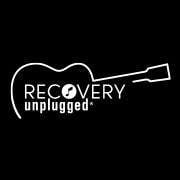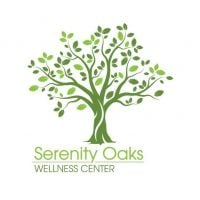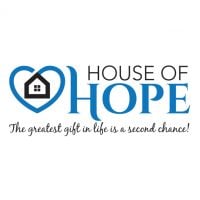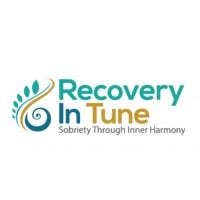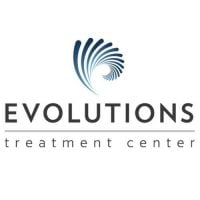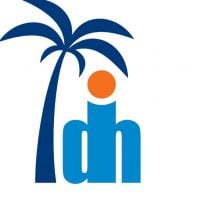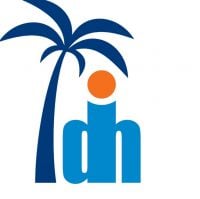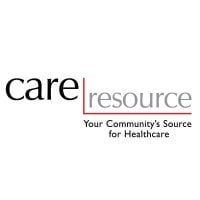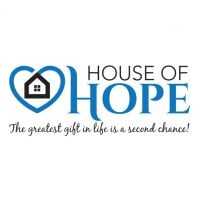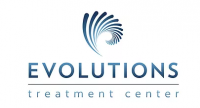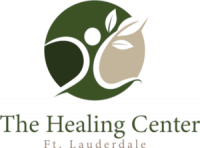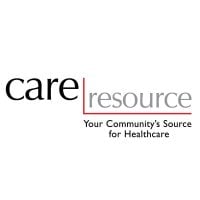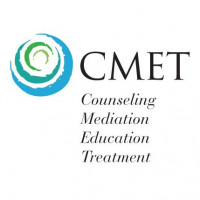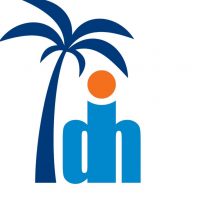Fort Lauderdale, FL's Best Drug Treatment Centers
Fort Lauderdale, FL, has a severe drug and alcohol addiction problem. In 2017, the city had a population of just over 180,000 people. Of those people, it is estimated that 8.5% are battling substance abuse disorders. This means that approximately 15,300 people in Fort Lauderdale are struggling with addiction.
In 2017, there were 200 deaths due to drug overdoses in Broward County, including Fort Lauderdale. This was a significant increase from the 155 deaths that occurred in 2016.
The drug addiction and abuse problems in Fort Lauderdale, FL, significantly impact the community. Drug addiction is a severe problem that can lead to crime, violence, and other social issues.
Many people struggling with addiction turn to crime to support their habit, impacting the whole community. Addiction affects those working with it and their families and friends.
Here we list all the best drug recovery programs and centers, each of which has its own unique features. There are a lot of trusted facilities in Fort Lauderdale, FL in our list, ready to help you or a loved one live a healthy and clean life, free of drug addiction starting nearby in Florida.
Get Professional Guidance on Finding Treatment
We will help you find treatment based on your location, budget, and specific needs and help you get started safely.
Free + Confidential Consultation
Browse 103 Centers in Fort Lauderdale, Florida
The Seawinds Residence Drug Rehabilitation Center in Hyannis, MA provides comprehensive, tailored inpatient care for individuals dealing with addiction, mental health issues, dual diagnosis, and eating disorders to equip them with the skills and tools necessary to maintain a healthy and sober lifestyle.


Beachcomber Family Treatment Center - Fort Lauderdale
Beachcomber Family Treatment Center - Fort Lauderdale is an accredited addiction treatment facility that provides customized care ranging from detoxification and residential treatment to partial hospitalization programs and aftercare support, as well as specialized programs for those struggling with alcoholism, opioid addiction, eating disorders, and other mental health issues.

Recovery Unplugged is an accredited, 30-bed drug rehab center in Fort Lauderdale, Florida offering specialized treatment for alcoholism, dual diagnosis, opioid addiction, mental health disorders and other forms of substance abuse through detoxification services, inpatient and outpatient treatment options, as well as aftercare support.




Road to Recovery Wellness Center is a CARF and JCAHO accredited addiction treatment center in Fort Lauderdale, Florida offering aftercare support, drug rehab and intensive outpatient programming for those struggling with substance abuse and addiction, accepting private health insurance.


Recovery First Treatment Center in Fort Lauderdale, Florida, is a leading addiction treatment facility that offers comprehensive treatment services for individuals struggling with addiction and substance abuse, including opioid addiction, dual diagnosis, and mental health disorders. They provide various levels of care, detoxification services, and aftercare support, and accept private health insurance for payment.


Henderson Behavioral Health - New Vistas is an accredited comprehensive addiction treatment facility in Fort Lauderdale, FL that provides various levels of care, including residential, intensive outpatient, intervention, outpatient and inpatient services for people struggling with substance abuse and mental health issues.

Serenity Oaks Wellness Center in Fort Lauderdale, Florida is a premier addiction treatment facility offering comprehensive programs for a variety of addictions, accredited by LegitScript, JCAHO, and NAATP and accepting private health insurance.


House of Hope - Stepping Stones Residential
House of Hope - Stepping Stones Residential in Fort Lauderdale, Florida, offers a range of services including drug rehab, outpatient treatment, and residential treatment for individuals struggling with addiction and substance abuse.


Recovery in Tune, a drug treatment center in Fort Lauderdale, Florida, provides comprehensive services for individuals battling addiction and substance abuse, including opioid addiction, drug addiction, alcoholism, dual diagnosis, and mental health concerns, with a range of levels of care and acceptance of private health insurance.

Evolutions Treatment Center
The Evolutions Treatment Center is an accredited addiction treatment facility that provides a variety of levels of care ranging from outpatient services to inpatient residential rehab, specifically tailored to those suffering from opioid addiction, drug addiction, substance abuse and mental health issues, with most private health insurance plans accepted.

Henderson Behavioral Health - Rainbow Villas is an accredited and comprehensive addiction treatment facility in Fort Lauderdale, FL that offers a variety of levels of care, from aftercare support to sober living and residential facilities, as well as private health insurance coverage, all in a CARF-certified safe environment where individuals can start their journey to long-term sobriety.

Destination Hope is an Addiction Treatment Facility in Fort Lauderdale, FL that specializes in providing care and support for individuals with addiction and mental health issues, offering a comprehensive range of services including detoxification, drug rehabilitation, and dual-diagnosis treatment.

Destination Hope Treatment Center
Destination Hope Treatment Center is an accredited, JCAHO-certified drug rehab center in Fort Lauderdale, Florida providing a range of evidence-based treatments for opioid addiction, substance abuse, drug addiction, alcoholism, and dual diagnosis; offering services from supervised detox to aftercare support and all levels of care from intensive outpatient to residential.

Chrysalis Health Administrative Office
Chrysalis Health Administrative Office offers comprehensive and individualized drug rehab services, including medically managed detoxification, medication-assisted treatment (MAT) if needed, individual counseling, group therapy, 12-step meetings, relapse prevention education, life skills training, dual diagnosis treatment for those with a mental health condition in addition to their addiction, and family counseling to help individuals achieve sobriety.
New Season - Sunrise Treatment Center
Sunrise Treatment Center is an accredited and state-licensed addiction treatment facility in Fort Lauderdale, FL that specializes in treating opioid addiction, substance abuse, drug addiction, alcoholism, and dual diagnosis for people of all ages using private health insurance.



Care Resource Community Health Centers – Oakland Park
Care Resource Community Health Centers – Oakland Park is a comprehensive drug rehab facility in Fort Lauderdale, FL offering personalized residential, outpatient and aftercare services accredited by JCAHO for individuals struggling with addiction and mental health issues such as CBT, as well as holistic treatments, all accepted by most major private health insurance plans.


Cornerstone Recovery Center is an accredited addiction treatment facility in Fort Lauderdale, Florida providing a range of services and levels of care to those struggling with opioid addiction, substance abuse, mental health, and alcoholism.


House of Hope - 1st Street is an accredited addiction treatment facility located in Fort Lauderdale, FL that offers a range of evidence-based, personalized services from drug rehab to aftercare support for individuals suffering from substance abuse, opioid addiction, alcoholism, mental health issues and more. All of their programs are designed to take into account the physical, mental, social and spiritual wellbeing of each individual client.


Evolutions Treatment Center is a professional rehab facility in Fort Lauderdale that provides customized and holistic treatment options for alcoholism, opioid addiction, dual diagnosis, and drug addiction, utilizing evidence-based therapeutic approaches and holding multiple accreditations.



Stony Brook Counseling Center
Stony Brook Counseling Center in Fort Lauderdale, Florida offers a holistic approach to mental health and substance abuse treatment, providing evidence-based therapies, individualized treatment plans, and comprehensive care that is tailored to meet the needs of each client.

Jennifer A. Murphy, LMHC, is a highly experienced mental health and substance abuse specialist in Fort Lauderdale, Florida who provides individual and group counseling, cognitive behavioral therapy, psychological assessment and testing, and specializes in treating addictions and substance use disorders.


The Core Centers is a premier addiction treatment facility located in Fort Lauderdale, Florida that offers an array of evidence-based treatments and holistic therapies with the goal of achieving and maintaining sobriety.

Recovery First Treatment Center is a 28-bed addiction treatment facility in Fort Lauderdale, Florida that provides a comprehensive range of services including opioid addiction, substance abuse, drug addiction, dual diagnosis, and mental health treatment, recovery support, intervention services, and residential levels of care accredited by CARF and JCAHO with coverage for private health insurance.


Stony Brook Counseling Center
The Stony Brook Counseling Center provides comprehensive drug rehab services, including aftercare support, intensive outpatient, and outpatient programs, utilizing evidence-based techniques such as cognitive behavioral therapy (CBT), to help individuals achieve long-term sobriety.


Faith Farm Ministries - Fort Lauderdale
Summary: Faith Farm Ministries - Fort Lauderdale is a long-standing facility that offers personalized, inpatient care and 24/7 support for individuals struggling with addiction, combining medical and psychological treatment with peer-led group counseling and other resources to facilitate successful long-term sobriety.
Henderson Behavioral Health - Parkside House
Henderson Behavioral Health - Parkside House in Fort Lauderdale, FL is a CARF-accredited addiction treatment facility offering comprehensive care and support for individuals with mental health and substance abuse issues.

Principle Recovery Center is an accredited addiction treatment facility in Fort Lauderdale, FL that offers comprehensive levels of care and specialized services to help individuals suffering from substance abuse, dual diagnosis, opioid addiction, alcohol dependence, and other forms of drug addiction to achieve and maintain sobriety.

Care Resource Community Health Centers
Care Resource Community Health Centers is a comprehensive drug rehab treatment center in Fort Lauderdale, FL that offers outpatient services and aftercare support to individuals struggling with opioid addiction, substance abuse, and other forms of addiction; accepting private health insurance to help those seeking recovery.


CMET - Counseling Mediation Education and Treatment
CMET is an established rehabilitation facility in Fort Lauderdale, Florida, founded in 2011, dedicated to helping individuals in the community affected by alcohol abuse, dual diagnosis (co-occurring disorders), and drug addiction by offering comprehensive support with an individualized focus.


Destination Hope - Tequesta St in Fort Lauderdale, FL is a renowned drug rehab facility offering comprehensive treatment services with medically-supervised detoxification, personalized treatment plans tailored to each patient's individual needs and accredited by the JCAHO, as well as therapeutic interventions including individual and group therapy sessions, family support groups and aftercare services since 2006.

Information About Substance Abuse and Addiction in Fort Lauderdale, FL
FL has a higher than average drug and alcohol abuse rate compared to other cities in Florida and across the United States.
Fort Lauderdale, FL, is ranked among the top 10 cities in the United States for drug abuse and addiction. This is a very troubling statistic, and it should be taken very seriously by anyone who lives in or near Fort Lauderdale.
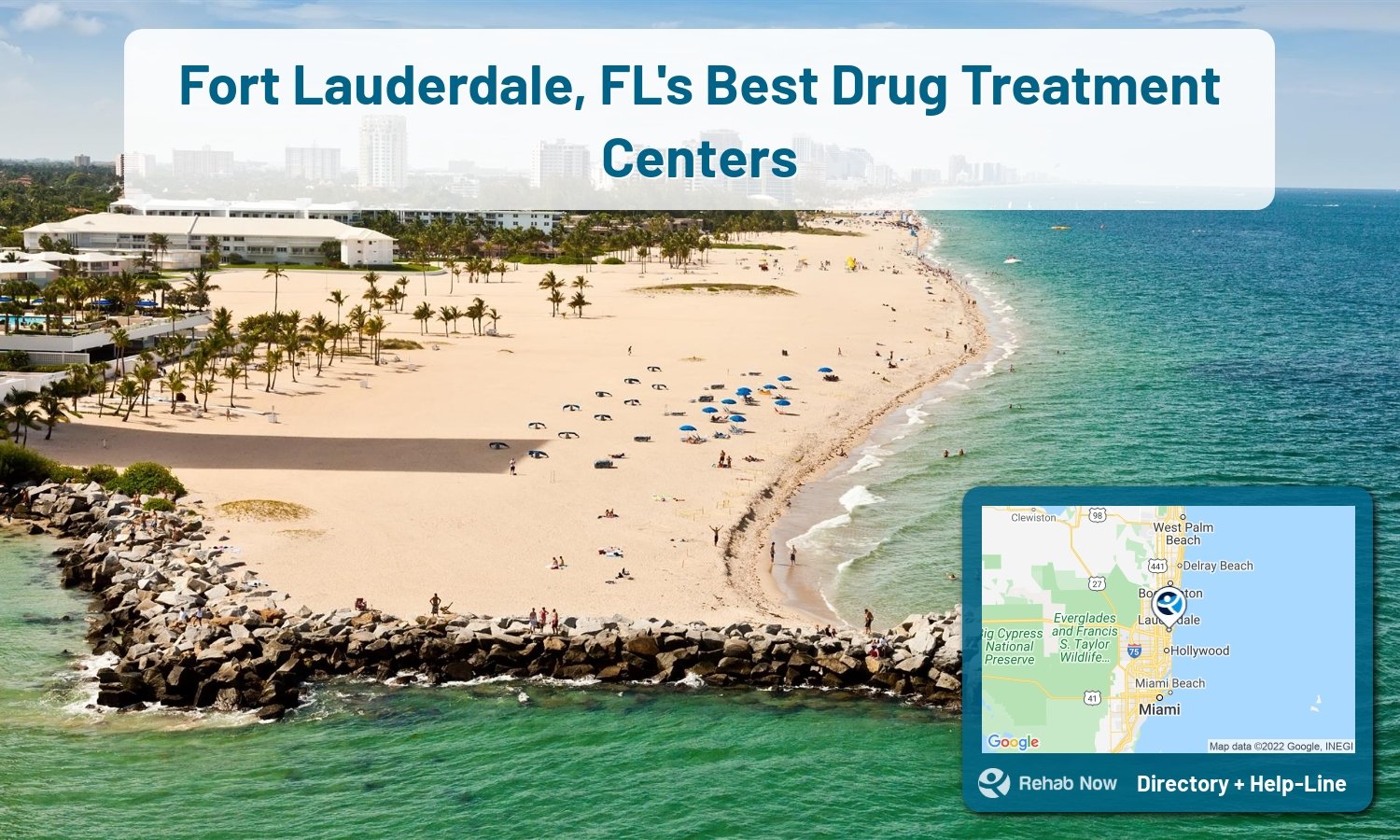
Get Sober in Fort Lauderdale, FL
There are many different drug treatment options available for those looking to get sober in Fort Lauderdale, FL. Some common treatment options include inpatient and outpatient treatment,
12-step programs and therapy. Inpatient treatment requires patients to live at the facility for the duration of treatment, while outpatient treatment allows patients to live at home and come to the facility for scheduled treatments and activities.
12-step programs are designed to help patients recover from addiction by following a set of guidelines and attending meetings with other recovering addicts.
Therapy is another common treatment option that can help patients address the underlying issues that contribute to addiction.
After getting sober, life in Fort Lauderdale, FL, will be different than it was during active addiction. Patients will no longer be using drugs or alcohol and will instead focus on their recovery.
This may include attending support groups, participating in therapy, and avoiding triggers and situations that could lead to relapse. Sobriety can be a challenge, but it is possible with the help of treatment and support.
Drug and Alcohol Statistics in Fort Lauderdale, Florida
According to the National Institute on Drug Abuse, in Fort Lauderdale, Florida, In 2015, there were 9,574 admissions to treatment for opioid addiction. This number is only a fraction of the people struggling with opioid addiction in this city.
- According to the National Survey on Drug Use and Health, in 2017, an estimated 592,000 people aged 12 or older had an alcohol use disorder (AUD). This equates to about 1 in every 16 adults.
- In 2016, an estimated 2.1 million people aged 12 or older had a substance use disorder (SUD). This includes both alcohol and drug abuse disorders.
- Approximately 21% of people aged 12 or older with an AUD also had a SUD.
- In 2017, an estimated 15,482 people aged 12 or older had used an illicit drug. This includes 8,251 people who used marijuana, 5,226 people who misused prescription drugs, 1,764 people who used cocaine, and 716 people who used heroin.
Additional Treatment Centers in Florida
Florida is one of the nation's epicenters for substance abuse and drug-related overdoses. In 2014, around 410,000 Florida residents were addicted to drugs and alcohol. Over the last 10 years, 12% of all deaths in the state were attributed to substance abuse. Treatment admissions for alcohol reached 24,329 patients in 2016, and 2.5% of Florida high school students admitted to using crack cocaine.
Still haven't found the right recovery center? Browse nearby Florida cities.
- Deerfield Beach, FL (14.1 mi.)
- Clermont, FL (195.2 mi.)
- Punta Gorda, FL (129.7 mi.)
- Palm Beach, FL (41.1 mi.)
- Sebastian, FL (118.9 mi.)
- Hobe Sound, FL (65.0 mi.)
- Morriston, FL (259.5 mi.)
- Kissimmee, FL (168.8 mi.)
- Opa-Locka, FL (16.2 mi.)
- Starke, FL (290.1 mi.)
- Royal Palm Beach, FL (40.9 mi.)
- Highland City, FL (166.0 mi.)
- Miami, FL (142)
- Fort Lauderdale, FL (103)
- West Palm Beach, FL (91)
- Jacksonville, FL (84)
- Tampa, FL (80)
- Orlando, FL (79)
- Delray Beach, FL (77)
- Pompano Beach, FL (39)
Comprehensive Drug Rehabilitation Programs in Fort Lauderdale, Florida
Some of the most common drug rehab programs include inpatient treatment, outpatient treatment, 12-step programs, and holistic approaches.
Inpatient treatment is often considered the most effective type of care, as it allows patients to receive around-the-clock care and supervision in a safe and comfortable environment.
Outpatient treatment is a good option for those who are not ready to commit to an inpatient program or those who have already completed an inpatient program and are seeking additional support.
12-step programs, such as Alcoholics Anonymous and Narcotics Anonymous, are also very popular and can be very helpful for those struggling with addiction.
Signs of Someone Struggling With Addiction in Fort Lauderdale, FL
If you are worried that someone you know is struggling with addiction, there are some signs that you can look for.
These include changes in behavior, such as becoming more withdrawn or secretive, changes in appearance, such as looking unkempt or wearing long-sleeved shirts even in warm weather to hide needle marks, and changes in mood, such as sudden outbursts of anger or sadness.
If you notice any of these changes, you must reach out to the person and offer your support.
What to Expect During Rehab in Fort Lauderdale, Florida?
The first step in any rehab program is detox when the body cleanses itself of all drugs and alcohol. This can be a difficult and uncomfortable process, but the body must begin the healing process. After detox, patients will enter into either an inpatient or outpatient treatment program.
Inpatient programs require patients to live at the facility for the duration of treatment, while outpatient programs allow patients to live at home and come to the facility for scheduled treatments and activities.
During treatment, patients will participate in therapy, counseling, and other activities designed to help them recover from addiction. After completing treatment, patients will be discharged and will be able to continue their recovery with aftercare programs and support groups.
If you or someone you know is struggling with addiction, don’t hesitate to seek help. There are many resources available, and treatment can make a massive difference in the lives of those affected by addiction.
What are Some Common Relapse Triggers in Fort Lauderdale, FL?
Relapse triggers are anything that causes someone to start using drugs or alcohol again after they have been sober for some time. Some common relapse triggers include stress, boredom, anxiety, depression, and peer pressure.
It is important to be aware of these triggers and have a plan for how to deal with them if they occur. Some helpful tips for avoiding relapse include attending support groups, participating in regular therapy sessions, and staying away from places or people that trigger memories of drug use.
If a trigger does occur, it is important to reach out for help right away so that you can get back on track with your recovery.
Traveling Outside of Fort Lauderdale, FL for Drug Addiction Treatment
If you are struggling with addiction and live in Fort Lauderdale, FL, you may be considering traveling outside of the city for treatment.
This can be a good option if you feel like you need a fresh start or if you want to get away from triggers and reminders of your addiction.
There are many great drug rehab programs located across the country, so you are sure to find one that meets your needs.
Traveling for treatment can also be a good way to get some perspective on your addiction and learn more about yourself and your recovery.
View options, availability, treatment methods, and more, for drug rehab and alcohol treatment in Fort Lauderdale, Florida. (888) 674-0062.


